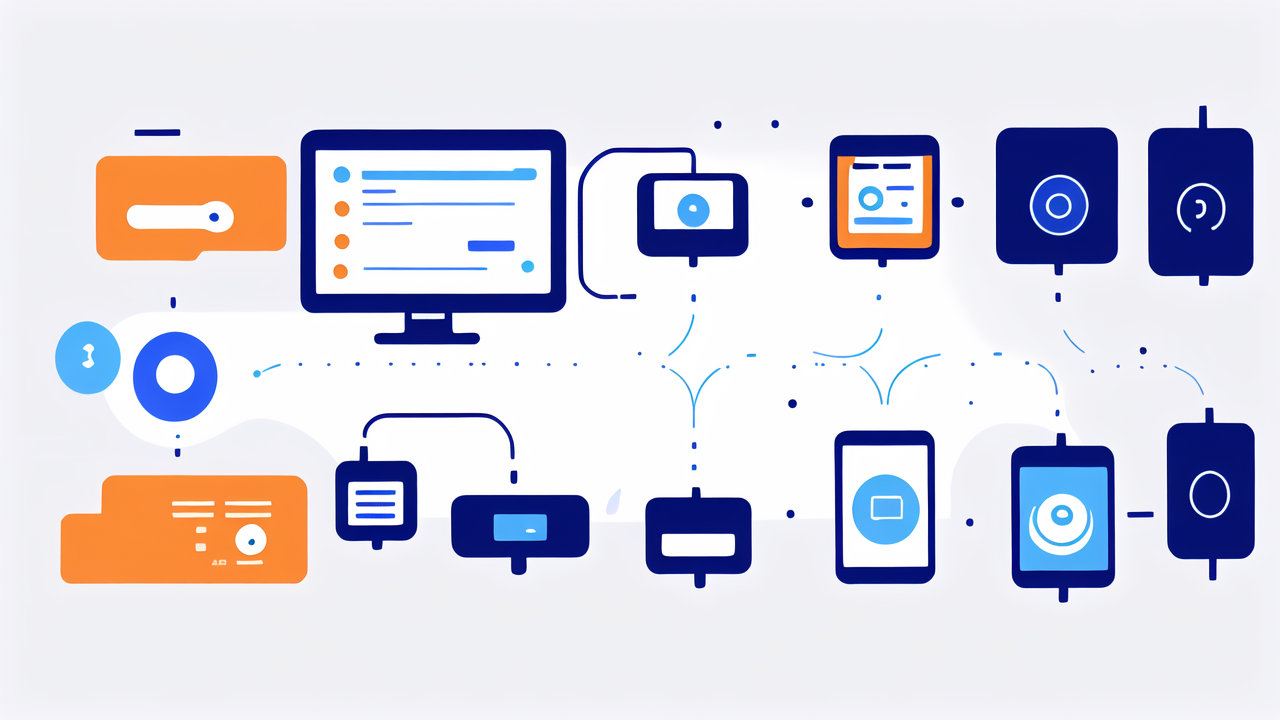Understanding the Importance of Health Monitoring in Today's Society
The Evolution of Health Monitoring Devices
Health monitoring has come a long way. It started with simple tools like thermometers. Now, we have smart watches. These devices can track many health aspects. They measure heart rate, sleep patterns, and more. The journey from basic tools to advanced wearables is impressive. It shows how tech has changed healthcare. Smart watches make health data easy to access. They give us real-time info about our bodies. This helps us make better health choices daily.

Why Smart Watches are Becoming Essential Health Tools
Smart watches are not just fancy gadgets. They're becoming vital health tools. Here's why:
- They provide continuous health data
- They can detect early signs of health issues
- They motivate users to stay active
- They offer personalized health insights
These features make smart watches valuable for health management. They help users take charge of their wellness. For many, they're as important as regular check-ups. Smart watches bridge the gap between doctor visits. They keep us informed about our health status all the time.
Key Health Monitoring Features of Top-Tier Smart Watches
Heart Rate Monitoring and Its Impact on Health
Heart rate monitoring is a key feature of smart watches. It tracks your pulse throughout the day. This data is crucial for several reasons:

- It shows your overall fitness level
- It can detect irregular heart rhythms
- It helps optimize workouts
- It can indicate stress levels
Constant heart rate data helps users understand their heart health better. It can alert them to potential issues early. This feature has even saved lives by detecting heart problems. It's a powerful tool for preventive healthcare. Many users find it motivates them to improve their cardiovascular health.
Advanced Sleep Tracking Capabilities
Sleep is vital for health, and smart watches are great sleep trackers. They monitor:
- Sleep duration
- Sleep stages (light, deep, REM)
- Sleep quality
- Sleep consistency
This data helps users improve their sleep habits. Better sleep leads to better overall health. It can boost mood, energy, and cognitive function. Smart watches often suggest ways to improve sleep quality. They might remind you to wind down before bed. Or they could suggest adjusting your sleep schedule. This feature helps many Americans tackle sleep issues.
Integration with Health and Wellness Apps
Smart watches don't work alone. They integrate with many health and wellness apps. This creates a comprehensive health ecosystem. Users can:
- Track nutrition
- Log workouts
- Monitor stress levels
- Set and track health goals
The integration makes health management easier. It puts all your health data in one place. This helps users see the big picture of their health. It also makes it easier to share data with healthcare providers. This feature turns smart watches into powerful health management tools.
Regulatory Landscape and User Privacy in Health Monitoring
How Smart Watches Comply with US Health Regulations
Smart watches that monitor health must follow strict rules. In the US, the FDA oversees these devices. Companies must ensure their watches meet certain standards. This includes accuracy in health data collection. It also covers data security and privacy. Smart watch makers work hard to comply with these rules. They often partner with medical experts to validate their features. This ensures that the health data is reliable and useful.

Balancing User Privacy and Health Monitoring
Privacy is a big concern with health monitoring devices. Smart watch companies face a challenge. They must balance detailed health tracking with user privacy. Most use strong encryption to protect user data. They also give users control over their data sharing. Many allow users to choose what data to track and share. Some even offer local data storage options. This means health data stays on the watch, not in the cloud. It's a complex issue, but companies are working to find the right balance.
The Future of Smart Watches in the Healthcare Industry
The future of smart watches in healthcare looks bright. We can expect to see:
- More advanced health sensors
- AI-powered health insights
- Integration with telemedicine services
- Personalized health recommendations
Smart watches may soon detect more health conditions. They might spot early signs of diseases like diabetes or heart issues. This could revolutionize preventive care. We may also see closer partnerships between tech companies and healthcare providers. Smart watches could become key tools in managing chronic conditions. They might even help in clinical trials. The potential for smart watches in healthcare is vast and exciting.




Leave a comment
This site is protected by hCaptcha and the hCaptcha Privacy Policy and Terms of Service apply.